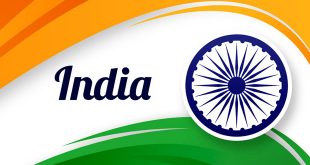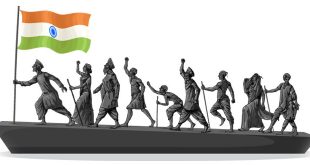Question: Name three natural methods of adding nutrients to soil. Answer: The three natural methods of adding nutrients to soil are: Field fallow, Crop rotation and Mixed cropping. Question: What are weeds? Answer: The unwanted plants that grow along with the crops and share nutrients are called weeds. Weeds decrease the crop …
Read More »NCERT 8th Class (CBSE) Science: Crop Production – Quiz
NCERT 8th Class (CBSE) Science: Crop Production – Quiz 23 Multiple Choice Questions related to NCERT 8th Class (CBSE) Science: Crop Production – Quiz: Agriculture began 10,000 years ago and enabled humans to settle down in one place. Horticulture deals with the production of vegetables, fruits, flowers and decorative plants. Crop …
Read More »NCERT 8th Class (CBSE) Science: Reproduction
Question: Why is reproduction important? Answer: Reproduction is important for producing new individuals of the same kind. Question: How is sexual reproduction different from asexual reproduction? Answer: Sexual reproduction requires two parents, one male and one female, to reproduce. Whereas in Asexual reproduction only one parent is required to reproduce. …
Read More »NCERT 8th Class (CBSE) Science: Cell – Structure and Functions – Quiz
NCERT 8th Class (CBSE) Science: Cell- Structure and Functions – Quiz 38 Multiple Choice Questions related to NCERT 8th Class (CBSE) Science: Cell- Structure and Functions – Quiz: All living organisms are made up of one and more cells. In unicellular organisms, a single cell performs all life functions. In multicellular organisms, …
Read More »NCERT 8th Class (CBSE) Social Science: The National Movement: Second Phase – Quiz
NCERT 8th Class (CBSE) Social Science: The National Movement: Second Phase – Quiz 8 Multiple Choice Questions related to NCERT 8th Class (CBSE) Social Science: The National Movement: Second Phase – Quiz: Mahatma Gandhi advocate ‘satyagraha’ to fight the british. His early campaigns were at Champaran, Ahmedabad and Kaira (Kheda). …
Read More »NCERT 8th Class (CBSE) Social Science: India After Independence – Quiz
NCERT 8th Class (CBSE) Social Science: India After Independence – Quiz 13 Multiple Choice Questions related to NCERT 8th Class (CBSE) Social Science: India After Independence – Quiz: The Indian Constitution was adopted on 26 January, 1950. Nathuram Godse disagreed with Gandhiji’s conviction that Hindus and Muslims should live together …
Read More »NCERT 8th Class (CBSE) Science: Cell – Structure and Functions
Question: What are the ‘building blocks of life’? Why are they so called? Answer: All living things are made up of one or more cells. For this reason, cells are known as the building blocks of life. Question: What is cytoplasm? Answer: The cytoplasm is a jelly-like substance that makes up most …
Read More »NCERT 8th Class (CBSE) Social Science: India After Independence
Question: When was the Indian Constitution adopted? Answer: The Indian Constitution was adopted on 26 January, 1950. Question: Which step has been described as revolutionary? Answer: All Indians above the age of 21 would be allowed to vote in state and national elections. Question: On what point did Nathuram Godse …
Read More »NCERT 8th Class (CBSE) Social Science: The National Movement: Second Phase
Question: What do you know about early life of Gandhiji? Answer: The national movement entered a new phase after the arrival of Gandhiji on 2 October 1869 at Porbandar (Gujarat), he received his early education in India. Later, he went to South Africa to practice law. During his stay these he …
Read More »NCERT 8th Class (CBSE) Social Science: The National Movement: First Phase – Quiz
NCERT 8th Class (CBSE) Social Science: The National Movement: First Phase – Quiz 12 Multiple Choice Questions related to NCERT 8th Class (CBSE) Social Science: The National Movement: First Phase – Quiz: The literal meaning of sarvajanik is ‘of or for all the people’. It is made of two words: sarva …
Read More » Class Notes NCERT Solutions for CBSE Students
Class Notes NCERT Solutions for CBSE Students




